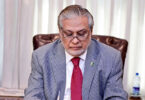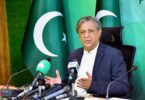Sameer Shoaib
Pakistan has grappled with persistent challenges in establishing a stable and flourishing democracy, raising questions about the factors contributing to its struggles. One notable obstacle is the historical interference of the military in politics, with numerous coups disrupting the democratic process. This recurring pattern has undermined the development of consistent civilian institutions and eroded public trust in democratic governance.
Political instability is another crucial factor hindering the success of democracy in Pakistan. Frequent changes in government, often attributed to corruption, weak institutions, and a lack of policy continuity, have created an environment of uncertainty. Corruption, pervasive in both political and bureaucratic spheres, further weakens democratic institutions, erodes public confidence, and obstructs economic progress.
Ethnic and religious divisions pose a significant challenge to national unity and the democratic process. Political parties often align along these lines, exacerbating regional and sectarian tensions. Economic challenges, including high levels of poverty, unemployment, and inequality, compound these issues by contributing to political discontent.
Security concerns, such as terrorism and insurgency, divert attention and resources away from democratic governance, with a focus on maintaining stability. The lack of education among a substantial portion of the population also presents a hurdle, as an uninformed electorate may be susceptible to manipulation by politicians, hindering the effectiveness of the democratic process.
Media influence, marked by censorship and accusations of biased reporting, further complicates the democratic landscape. A free flow of information is essential for an informed electorate and robust democratic functioning, but challenges in the media environment limit these crucial elements.
In conclusion, the struggles of democracy in Pakistan are multifaceted, intertwined, and deeply rooted in historical, political, social, and economic factors. Addressing these challenges comprehensively, fostering good governance, promoting the rule of law, and encouraging civic participation are crucial steps towards establishing a resilient and successful democratic system in the country.







